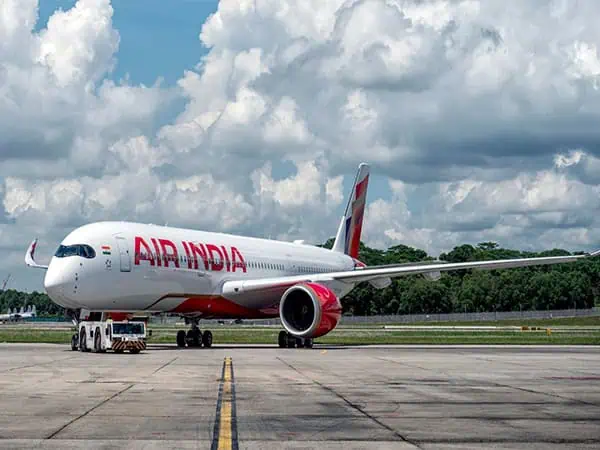Unwelcome Guests on Long-Haul Flight
Air India is once again facing scrutiny after cockroaches were reportedly discovered on board flight AI180 traveling from San Francisco to Mumbai, via Kolkata. The incident, which affected two passengers during the first leg of the journey, has sparked concern over hygiene and safety standards on one of the country’s flagship international carriers.
According to the airline, the two passengers were “unfortunately bothered by the presence of a few small cockroaches.” The airline acknowledged the issue in a statement and said that the affected travelers were relocated to other seats in the same cabin to ensure their comfort.
The unwelcome insects were noticed before the aircraft made a scheduled refueling stop in Kolkata. Following this, Air India claims a deep cleaning of the aircraft was carried out before it continued its journey to Mumbai.
Airline Cites Ground-Level Infiltration
In its official response, Air India said, “Despite our regular fumigation efforts, insects can sometimes enter an aircraft during ground operations.” The airline apologized for the inconvenience caused but appeared to downplay the severity of the issue by describing it as an occasional occurrence.
“Insects can sometimes enter an aircraft during ground operations,” the airline reiterated, adding that “a deep cleaning process was undertaken in Kolkata during a scheduled fuel stop. The same aircraft subsequently departed in time for Mumbai.”
Though the airline has admitted to the presence of the cockroaches and taken responsibility, its reasoning has not sat well with some travelers and social media users, who criticized the explanation as inadequate for an international route that spans over 16 hours.
Investigation Initiated to Prevent Recurrence
Air India also announced that an internal investigation has been launched to determine how the pests made their way onto the aircraft. The inquiry aims to identify any lapses in ground maintenance or pre-flight inspection procedures and is expected to result in additional protocols being implemented to prevent such occurrences in the future.
A spokesperson said, “We are looking into the root cause of the incident to ensure it does not recur. Our priority is the safety and comfort of all passengers on board.”
Recent Setbacks for the Airline
This is not the first setback for Air India in recent days. Just a day before the cockroach incident made headlines, a Delhi-bound Air India flight from Bhubaneswar was cancelled due to an unusually high cabin temperature before departure. The back-to-back operational issues have prompted renewed concerns about the airline’s maintenance standards and quality control.
Travel experts and frequent fliers have also pointed out that cleanliness and hygiene should be of paramount importance, particularly on long-haul international routes, where passengers often spend over 15 hours inside a closed environment.
Public Reaction and Industry Implications
The news quickly spread across social media platforms, with many users expressing their dissatisfaction and calling for stricter checks and higher standards. “This isn’t a local train, it’s an international flight. We expect better,” wrote one user on X (formerly Twitter). Others shared similar horror stories, fueling a broader conversation about cleanliness in Indian aviation.
Aviation analysts suggest that such incidents could damage Air India’s attempts to position itself as a world-class airline, especially in light of its ongoing efforts to modernize its fleet and improve service quality under the Tata Group’s ownership.
With increased competition from other global and domestic carriers, including those offering premium international service, maintaining strict hygiene protocols is essential to safeguarding Air India’s reputation.
Looking Ahead
As the investigation unfolds, passengers and industry observers alike will be watching closely to see whether the airline introduces any substantial measures. Whether this latest incident will push Air India to raise the bar on its service standards remains to be seen.
For now, what should have been a routine intercontinental journey has turned into yet another PR crisis for the national carrier—one that quite literally crawled into the spotlight.








